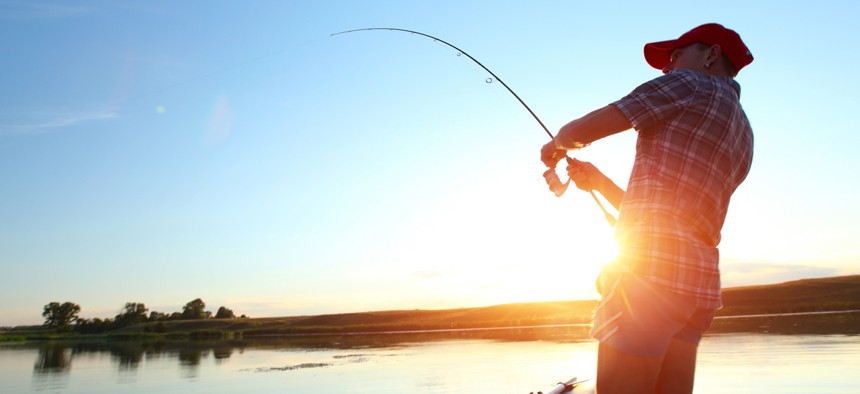Behind on Child Support? In Some States that Means No Fishing or Hunting

The policy would be an additional collection tool for the state, which has more than $404 million in uncollected child support. Shutterstock
A proposal in Utah would prevent certain people from obtaining hunting or fishing permits if they're behind on child support. Similar policies have been adopted by other states.
Want to hunt or fish in Utah? Make sure you’ve paid your child support.
A bill introduced Monday in the state legislature would bar some people who are behind on child support payments from obtaining permits for hunting and fishing in the state.
The legislation, sponsored by state Rep. Karianne Lisonbee, was crafted at the request of the state’s Office of Recovery Services, which believes the requirement could be a tool to reduce past-due child support. As of 2018, Utah parents were behind more than $400 million in payments, according to data from the National Conference of State Legislatures.
Current state law contains a provision that allows a judge to restrict a parent's access to a recreational license, Lisonbee said, but it's rarely enforced.
"Because it requires a court action, that tool isn't utilized," she said. "Passing this bill will give ORS a more effective tool to incentivize non-custodial child support payments."
Under the terms of the legislation, parents who owe at least $2,500 in child support would be prohibited from obtaining a hunting or fishing “license, permit or tag” from the state Division of Wildlife Resources. Those residents would be eligible to purchase permits only after their debt is paid in full and the Office of Recovery Services notifies the wildlife agency.
The measure would serve as an extra collection method for the state, where 38% of families do not receive the child support they’re owed, Lisonbee said. She noted the legislation only affects recreational licenses, not driver’s licenses or business permits, which could further impact an individual’s ability to pay.
There are roughly 24,000 non-custodial parents in Utah who hold hunting or fishing licenses and are behind on their child support payments, she said. Similar policies have been adopted in other states, including Illinois, which enacted its law in 2007 and collected $109,000 in outstanding payments the following year.
In Nebraska, state officials have for 20 years required that hunters and fishermen provide their social security numbers to obtain wildlife permits, which are matched with a database that tells sellers whether they can issue the licenses. The program would work similarly in Utah, Lisonbee said.
"I discussed this policy with the director of ORS this summer. Interestingly, I also went fishing in Nebraska this summer. When I went to buy a fishing license, I was asked if I was delinquent on any child support payments," she said. "The policy in this bill is not new."
If passed, the legislation would take effect next July. The bill is currently awaiting a committee referral in the House.
Kate Elizabeth Queram is a Staff Correspondent for Route Fifty and is based in Washington, D.C.
NEXT STORY: Americans Go to the Library More Than Anywhere Else





